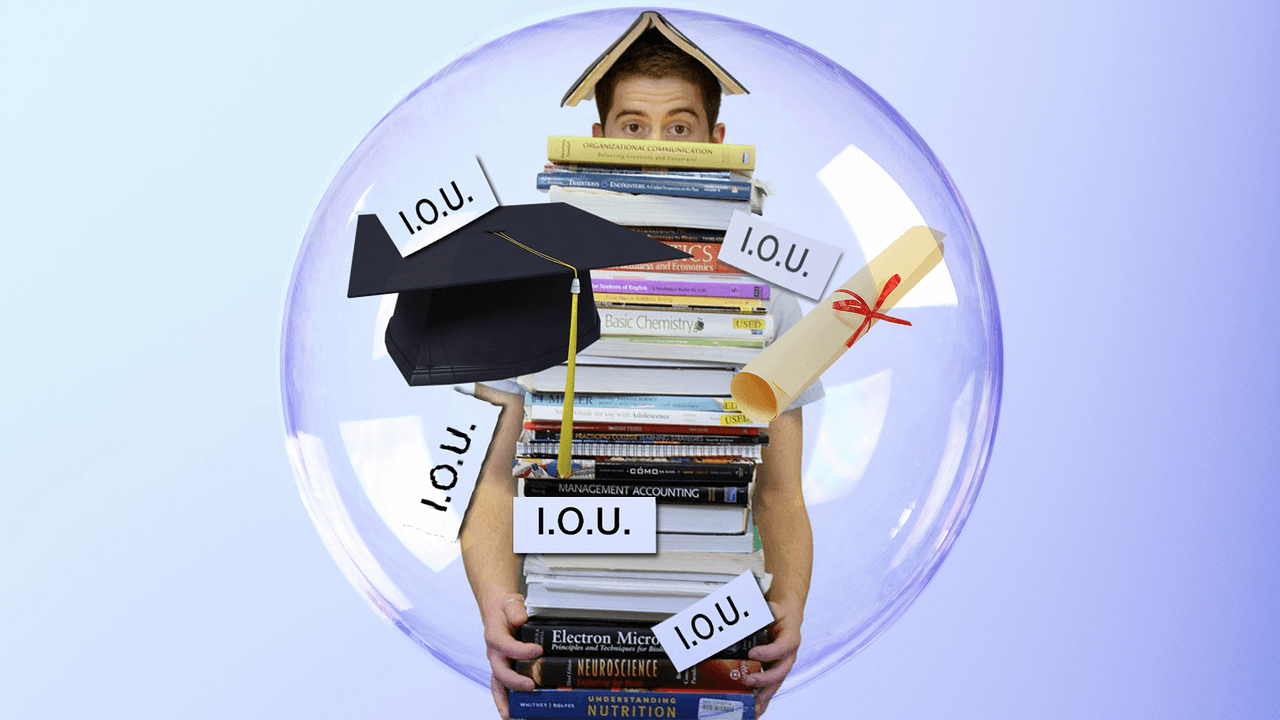Student-centric advice and objective recommendations
Higher education has never been more confusing or expensive. Our goal is to help you navigate the very big decisions related to higher ed with objective information and expert advice. Each piece of content on the site is original, based on extensive research, and reviewed by multiple editors, including a subject matter expert. This ensures that all of our content is up-to-date, useful, accurate, and thorough.
Our reviews and recommendations are based on extensive research, testing, and feedback. We may receive commission from links on our website, but that doesn’t affect our editors’ opinions. Our marketing partners don’t review, approve or endorse our editorial content. It’s accurate to the best of our knowledge when posted. You can find a complete list of our partners here.
How Does Interest Work On a Student Loan?
 By
Kayla Korzekwinski
By
Kayla Korzekwinski 
Kayla Korzekwinski is a Scholarships360 content writer. She earned her BA from the University of North Carolina at Chapel Hill, where she studied Advertising/PR, Rhetorical Communication, and Anthropology. Kayla has worked on communications for non-profits and student organizations. She loves to write and come up with new ways to express ideas.
Full BioLearn about our editorial policies

Maria Geiger is Director of Content at Scholarships360. She is a former online educational technology instructor and adjunct writing instructor. In addition to education reform, Maria’s interests include viewpoint diversity, blended/flipped learning, digital communication, and integrating media/web tools into the curriculum to better facilitate student engagement. Maria earned both a B.A. and an M.A. in English Literature from Monmouth University, an M. Ed. in Education from Monmouth University, and a Virtual Online Teaching Certificate (VOLT) from the University of Pennsylvania.
Full BioLearn about our editorial policies

Like most types of loans, student loans require repayment with interest. Most borrowers understand this, but can still be left wondering “how does interest work on a student loan?” Interest can work in a few different ways. Continue reading to learn more!
What is interest?
Interest is the cost of borrowing money. A loan’s interest rate takes the form of a percentage of the current loan balance. Interest adds up over time, and it is the first thing that monthly payments cover. In many cases, interest can end up making a borrower’s debt larger. That’s why it is important to understand how it works.
Fixed vs. variable interest
There are two types of interest rates: fixed and variable.
Fixed interest rates remain the same over the life of the loan. The percentage does not increase or decrease. Variable interest rates, on the other hand, fluctuate throughout the life of the loan. This means your interest can be higher or lower month-to-month. Variable interest rates are based on economic benchmarks that reflect the market such as the LIBOR.
Subsidized loans vs. unsubsidized loans
The US Department of Education disperses subsidized loans to students who show financial need. Subsidized loans do not accrue interest while the borrower is in school. They also do not accrue interest during the 6-month grace period and in periods of deferment. This is because the government takes on the responsibility of paying the interest.
Unsubsidized loans can be disbursed by the Department of Education or by private lenders. Unsubsidized loans begin accruing interest immediately once you receive the funds. Borrowers will not need to pay the interest while they are still in school and during their grace period. The interest will be capitalized at the end of the grace period.
Also see: All about subsidized vs unsubsidized student loans
Capitalization
Capitalization occurs when accrued interest is added to the principal loan balance. When your loan is capitalized, it raises the total loan balance, which could result in borrowers paying more in interest over time.
Capitalization occurs on unsubsidized loans when payment begins. Interest can also be capitalized after periods of deferment or forbearance or when a borrower leaves the SAVE Plan or income-driven repayment plans.
Federal student loan interest
All federal student loans have fixed interest rates. Below is a chart displaying interest rates for Direct federal loans disbursed on or after July 1, 2023, and before July 1, 2024:
| Loan Type | Borrower Type | Interest Rate |
| Direct Subsidized and Direct Unsubsidized loans | Undergraduate | 5.5% |
| Direct Unsubsidized loans | Graduate | 7.05% |
| Direct PLUS loans | Parents and graduate/professional students | 8.05% |
Federal loans are daily interest loans, meaning that interest accumulates every day. Borrowers can calculate how much interest accrued in a month by multiplying their current outstanding balance by the interest rate. Then, divide that number by the number of days since your last payment.
Private student loan interest
All private loans are unsubsidized, so they will accrue interest from the time that you take them out. Private loans may have fixed or variable interest rates, depending on the lender. You can find information about the interest in the promissory note for the loan.
Keep track of your loans!
When it comes time to start repaying your student loans, it’s essential to be aware of how interest works and how it will affect your payments. Be sure to keep track of the interest information, such as the rate and fixed or variable, for each of your student loans. This will help you strategize which loans to prioritize in repayment. Typically, private loans have higher interest rates and should be prioritized. If you pay off the loans with higher interest rates first, you’ll end up repaying less overall!
Also see: Which student loans should I pay off first?





